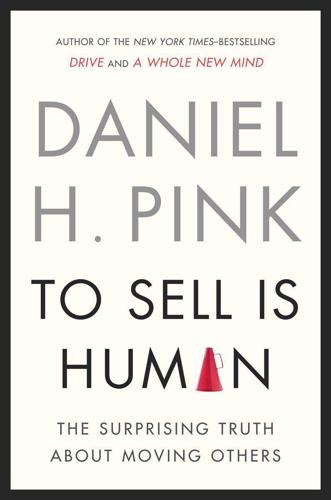
To Sell Is Human: The Surprising Truth About Moving Others
by
Daniel H. Pink
Published 1 Dec 2012
Blake then concludes his harangue with some old-fashioned sales training, flipping over a green chalkboard and pointing to where he’s written the first three letters of the alphabet. “A-B-C,” he explains. “A—always. B—be. C—closing. Always be closing. Always be closing.” “Always be closing” is a cornerstone of the sales cathedral. Successful salespeople, like successful hunters of any species, never relent in pursuing their prey. Every utterance and each maneuver must serve a single goal: pushing the transaction to a conclusion—your conclusion—and getting the person across the table, as Blake says, “to sign on the line which is dotted.” Always be closing. Its simplicity makes it understandable; its alphabeticality makes it memorable. And it can be constructive advice, keeping sellers focused on a deal’s end even during its beginning and middle.
…
Index The page numbers in this index refer to the printed version of this book. To find the corresponding locations in the text of this digital version, please use the “search” function on your e-reader. Note that not all terms may be searchable. ABCs “Always be closing” model, 68 moving others, 4–5, 68–69 See also attunement; buoyancy; clarity accountability, 212–15 “Ad Game” exercise, 202 Adler, Mortimer, 190 Akerlof, George, 47–49 Albarracín, Dolores, 101–2 “Always be closing” strategy, 68 “Amazing Silence” exercise, 190–91 Amazon.com, 89–90 ambiversion development of ambiversion skills, 90–91 self-assessment website, 90 and success in selling, 82–84 Andreessen, Marc, 31 app economy, 31–32 appropriate negativity, 122 Atlassian, 32–34 attitude, negative appropriate negativity, 122 benefits of, 121–22 blemished frame, 139–40 defensive pessimism, 122 disputing and de-catastrophizing, 119 learned helplessness, 109–10 pessimistic explanatory style, 110–11 positivity/negativity ratio, 107–8, 118 rejection, 99, 120–21, 122–23, 193 attitude, positive belief in product, 106–7 blemished frame, 139–40 broadening effect on negotiations, 104–6 making partner look good, 195–98 Optimism Test, 120 optimistic explanatory style, 111–12, 118–20 Positivity Self Test, 118 positivity/negativity ratio, 107–8, 118 self-talk, 100–101 “Yes and” technique, 193–94, 202 attunement ambiversion, 80–84 E Test, 69–70 empathy in medical settings, 74 attunement (cont.)
…
I’ll show how the balance of power has shifted—and how we’ve moved from a world of caveat emptor, buyer beware, to one of caveat venditor, seller beware—where honesty, fairness, and transparency are often the only viable path. That leads to Part Two, where I cull research from the frontiers of social science to reveal the three qualities that are now most valuable in moving others. One adage of the sales trade has long been ABC—“Always Be Closing.” The three chapters of Part Two introduce the new ABCs—Attunement, Buoyancy, and Clarity. Chapter 4 is about “attunement”—bringing oneself into harmony with individuals, groups, and contexts. I draw on a rich reservoir of research to show you the three rules of attunement—and why extraverts rarely make the best salespeople.

The Launch Pad: Inside Y Combinator, Silicon Valley's Most Exclusive School for Startups
by
Randall Stross
Published 4 Sep 2013
B. Be. C. Closing. Always Be Closing. Always! Be Closing.”2 The circumstances in the case of these startups are different from those in Mamet’s fictional setting, a dingy real estate office—the YC founders are self-employed and the atmosphere is as bright as Mamet’s set was dark. But ABC is a necessity for all salespeople, including startup founders. Always Be Closing. Always! Be Closing. Among the founders of the summer batch, Michael Litt of Vidyard is the one who most clearly was born a salesperson. He does not have to work on paying attention to sales. “Always Be Closing” comes naturally to him.
…
Further, publisher does not have any control over and does not assume any responsibility for author or third-party Web sites or their content. For Rebecca, Martin, Jacob, and Alex CONTENTS Title Page Copyright Dedication INTRODUCTION 1 YOUNGER 2 OLDER 3 GRAD SCHOOL 4 MALE 5 CRAZY BUT NORMAL 6 UNSEXY 7 GENIUS 8 ANGELS 9 ALWAYS BE CLOSING 10 CLONE MYSELF 11 WHAT’S UP? 12 HACKATHON 13 NEW IDEAS 14 RISK 15 MARRIED 16 FEARSOME 17 PAY ATTENTION 18 GROWTH 19 FIND A DROPBOX 20 DON’T QUIT 21 SOFTWARE IS EATING THE WORLD Epilogue Acknowledgments Appendix: The Summer 2011 Batch Notes Index INTRODUCTION San Francisco Gray Line is the largest sightseeing tour company in Northern California.
…
He impresses upon them that they should know their growth rate and then obsess about meeting the target they set. “Treat it like a game. It will cause you to do the right thing. It will focus everything. It will be like a compass.” The next time he sees them, he says, he wants to hear the number. 9 ALWAYS BE CLOSING Chris Tam and Paul Chou are spending a lot of time in bars these first weeks. More than any other founders in the summer batch. Bars are where they must go to test out their ideas for Opez, a “fan site for bartenders,” as they put it when they applied to YC. They would subsequently expand the idea to include other service occupations—waiters, hairstylists, personal trainers, masseuses, and others—in which customers sought out the best practitioners.
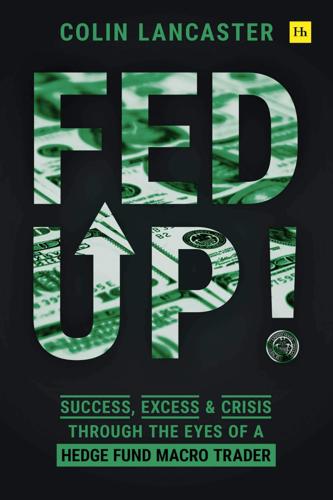
Fed Up!: Success, Excess and Crisis Through the Eyes of a Hedge Fund Macro Trader
by
Colin Lancaster
Published 3 May 2021
“Just think how well they did on that during the run-up to the GFC. It was as if Greenspan himself was giving the ‘Always Be Closing’ speech in the movie Glengarry Glen Ross.” He stands up and mimics the famous scene in the movie. He knows the speech by memory. Chairman Greenspan to the heads of the Wall Street banks in mid-2007: Gentleman, thank you for joining me today here at the offices of the New York Fed … Please remember that the “Coffee’s for closers only …” A-B-C. A-always, B-be, C-closing. Always be closing. Always be closing … You got the prospects comin’ in. You think they came in to get out of the rain? Guy doesn’t walk on the lot unless he wants to buy.

Ghettoside: A True Story of Murder in America
by
Jill Leovy
Published 27 Jan 2015
They had to “sell ice cubes to an Eskimo!” he would say. The elegant business attire was part of this ethos. “People say, oh, you think you’re perfect,” La Barbera said. “Well, yeah! We’d better be.” He kept a whiteboard near his desk to track cases and leave messages. The salesman’s credo, “ABC—Always Be Closing,” was written at the top. But it was not merely a sales job that detectives such as Skaggs perfected. Good ghettoside investigators projected something deeper to their wavering witnesses—something akin to pure conviction. It was no accident that the most successful among them were confident, reassuring.
…
In South L.A., Skaggs believed, murders got solved only through another level of vigor—when a detective was motivated by something greater than the promise of a good “rating” or promotion. There was a pro forma way to do the job, and there was the Southeast way—best described by the salesman’s credo he had learned from Sal La Barbera. Always be closing. It was why he disliked it when detectives sat around in front of computers or ate lunch at restaurants. Now Skaggs’s whole outlook and career were rooted in the same aggrieved sense of injustice that had prompted Wally Tennelle to turn down RHD a decade before. He believed the victims of South Central deserved better than the appearance of a functioning justice system.
…
Finally, Skaggs made a last visit back for the South Bureau Christmas party—enduring jeers of “West Bureau!” when he walked in—and said goodbye. By that time, he was ready for the new station to open. He had a large whiteboard installed in his new office to list cases, just like La Barbera’s. He had it stenciled so it wouldn’t look messy. At the top, he wrote the old Southeast mantra “Always Be Closing” in red letters. He bought a top-notch coffeemaker and apple-spice Febreze air freshener. He laid claim to a closet the size of a room and had new shelving installed. Skaggs knew that for all the slowdown in crime, he was sitting on top of a vast dark stain of unsolved homicides from the Big Years in Rampart—back when the bodies floated in MacArthur Park lake.
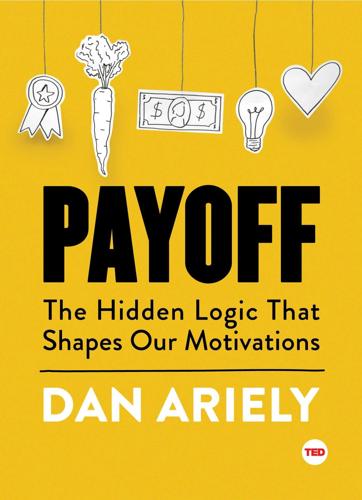
Payoff: The Hidden Logic That Shapes Our Motivations
by
Dan Ariely
Published 15 Nov 2016
“The first prize is a Cadillac El Dorado,” he tells them. “The second prize is a set of steak knives. The third prize? ‘You’re fired.’ ” This infamous, insulting motivational speech delivered by a young Alec Baldwin in the movie Glengarry Glen Ross is an obscenity-studded caricature of the business world’s cruelty. This scene—with its “ABC” (“Always Be Closing”) directive—is often listed as a “must watch” for management trainees, reflecting the strong, persistent, and mistaken belief that external motivations, such as threats, are crucial ingredients in the recipe for inspiring hard work. Movies aside, this type of cattle-prod threat is unlikely to fly in the modern workplace.

Amsterdam Like a Local
by
Dk Eyewitness
g NIGHTLIFE g Contents Concert Venues BITTERZOET PARADISO BIMHUIS AFAS LIVE OCII TOLHUISTUIN ZIGGO DOME MELKWEG g Concert Venues g Contents Google Map BITTERZOET Map 1; Spuistraat 2 HS, Spui; ///drums.news.proofs; www.bitterzoet.com Students averse to the mainstream own the night at this tiny indie club, conveniently located down the street from one of the University of Amsterdam’s main campuses. The snug main room means no matter where you are, you’ll always be close to the stage. Better yet, the entrance fee is very wallet-friendly. g Concert Venues g Contents Google Map PARADISO Map 3; Weteringschans 6, Leidseplein; ///burn.restless.traded; www.paradiso.nl You’d be hard-pressed to find a music lover who doesn’t go misty-eyed at the mere mention of Paradiso.
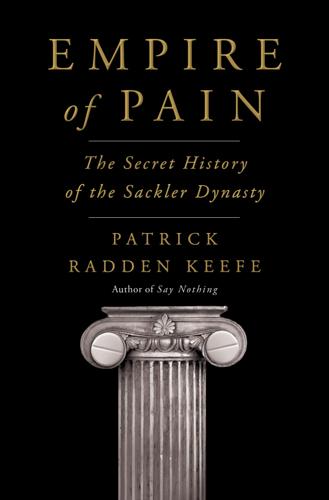
Empire of Pain: The Secret History of the Sackler Dynasty
by
Patrick Radden Keefe
Published 12 Apr 2021
The company continued to distribute literature that made false claims about the safety of opioids and suggested that those who showed signs of dependence and withdrawal were merely suffering from “pseudo-addiction.” In Tennessee, the company trained its sales representatives to “ABC,” or “Always Be Closing,” citing a line delivered by Alec Baldwin in the 1992 film Glengarry Glen Ross, which is about salesmen using deceptive tactics to con unsuspecting buyers into investing in worthless real estate. In their notebooks, the new reps dutifully wrote down, Always…Be…Closing. The Sacklers did not appear to be chastened by having to pay a $600 million fine. Instead, the family and their adjutants continued to abide by Richard’s philosophy that it was not the drug that was the problem.
…
In court papers, a former Purdue employee who joined the company in 2009 and worked as a sales rep for six years said, “I also discussed pseudoaddiction with doctors.” Declaration of Sean Thatcher, State of Montana v. Purdue Pharma LP et al., Case No. ADV-2017-949, Montana First Judicial Court, Feb. 16, 2018. “Always Be Closing”: Notes from Purdue sales representatives’ training notebooks, dating from 2009 and 2012, reproduced in Tennessee Complaint. “key messages that work”: Pamela Taylor, email, May 16, 2008; Executive Committee notes, April 16, 2008; presentation by Luntz, Maslansky Strategic Research, April 16, 2008, cited in Massachusetts Complaint.
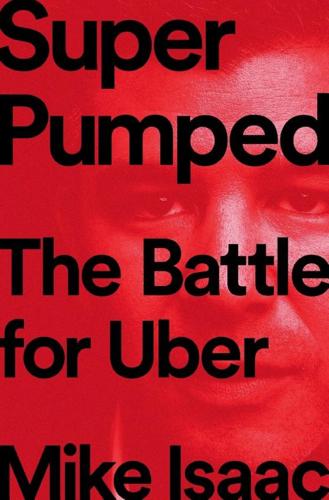
Super Pumped: The Battle for Uber
by
Mike Isaac
Published 2 Sep 2019
When he was on, Kalanick was on. He was a force of nature with investors, a Jobsian tech wizard crossed with the hard-charging motivational speaker played by Alec Baldwin in Glengarry Glen Ross. “A-B-C,” Kalanick chanted to himself, repeating Baldwin’s words in his head. “A-Always, B-Be, C-Closing. Always be closing. Always be closing!” Kalanick didn’t fuck around; he knew how to close a deal. The first few rounds brought Uber tens of millions in venture capital. But Kalanick needed more. A lot more. The company was entering the big leagues of fundraising, where Uber wouldn’t be asking for an errant five to ten million dollars from a rich tech enthusiast.

Lifestyle Entrepreneur: Live Your Dreams, Ignite Your Passions and Run Your Business From Anywhere in the World
by
Jesse Krieger
Published 2 Jun 2014
This could be something like a 2% discount and free shipping or extra warranty coverage. Something that isn’t too expensive to you (the company) but still incentivizes them to buy now instead of later. I think it was Confucius who said “a bird in the hand is worth two in the bush.” Getting 98% of the sales price right away is better than 0% later. Follow the ABCs: Always Be Closing. Each time you talk to a potential customer make sure you are moving towards closing the sale. Don’t entertain aimless conversations or disclose information about how your business operates. If you think the prospect may be working for a competitor or just fishing for information, politely tell them to get back in touch when they are ready to make a purchase then move on.

Wild Ride: Inside Uber's Quest for World Domination
by
Adam Lashinsky
Published 31 Mar 2017
In 2009, during his hiatus from full-time employment, he’d written a blog post for fellow entrepreneurs listing his fifteen “essential” fund-raising tips. Much of his advice was commonsense start-up pablum, like how to generate excitement for one’s deal, the importance of soliciting referrals, and how to “always be closing.” Prosaic or not, Kalanick had worked out a method, and he intended to follow it while raising money for Uber. “Every communication you have with prospective investors must include a sense of momentum and urgency in the deal process,” he wrote, adding helpful lines an entrepreneur could e-mail as follow-ups, like “Things are moving quickly” and “Many parties are interested.”
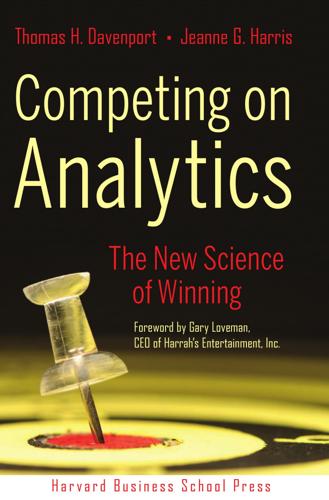
Competing on Analytics: The New Science of Winning
by
Thomas H. Davenport
and
Jeanne G. Harris
Published 6 Mar 2007
While some analyses can get by with ballpark figures and others need precision to several decimal points, all must be informed by data that passes the credibility tests of the people reviewing it. It is complete. The definition of complete will vary according to whether a company is selling cement, credit cards, season tickets, and so on, but completeness will always be closely tied to the organization’s distinctive capability. It is current. Again, the definition of current may vary; for some business problems, such as a major medical emergency, data must be available instantly to deploy ambulances and emergency personnel in real time (also known as zero latency); for most other business decisions, such as a budget forecast, it just needs to be updated periodically—daily, weekly, or monthly.
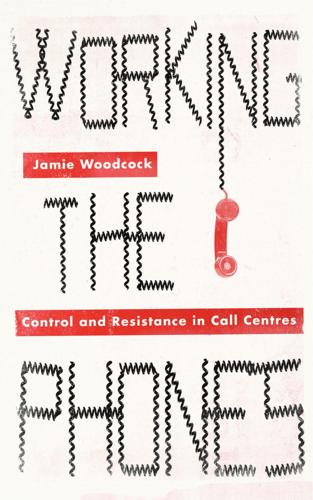
Working the Phones: Control and Resistance in Call Centres
by
Jamie Woodcock
Published 20 Nov 2016
Each week I was given a grading and a series of instructions about how to improve. These were always quite vague but in general involved remarks about being more ‘assertive’, ‘give 110 per cent to every call’, or even, parroting the rant by Blake (Alec Baldwin) in the film Glengarry Glen Ross, ‘Remember your ABCs – Always Be Closing!’2 The ‘1-2-1’ feedback was always supplemented with the advice: ‘Remember, every “no” is one step closer to a “yes!”’, a tautological refrain about the logic of making sales. There was a constant pressure to make sales on the call-centre floor. It began to feel like a contemporary version of Robert Linhart’s experience on the Citroën assembly line in 1970s France.
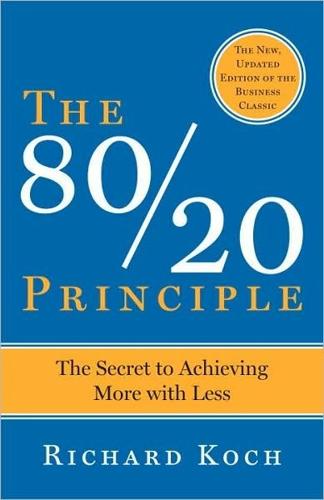
The 80/20 Principle: The Secret of Achieving More With Less
by
Richard Koch
Published 15 Dec 1999
The need for overhead coverage from unprofitable segments can disappear pretty quickly. Yet the truth is that you don’t need to wait. “If your eye offends you, pluck it out!” Just remove the offending overhead. If your will is strong, you can always do it. The less profitable segments can sometimes be sold, with or without their overheads, and always be closed. (Do not listen to accountants who bleat about “exit costs” a lot of these are just numbers on a page with no cash cost. Even where there is a cash cost, there is normally a very quick payback, one that will be much quicker, because of the value of simplicity, than the bean counters will ever tell you.)
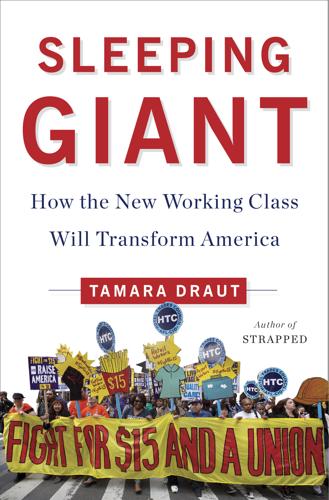
Sleeping Giant: How the New Working Class Will Transform America
by
Tamara Draut
Published 4 Apr 2016
They both work in the trucking industry, and being close to home was the chief reason Rhonda bought a house so close to the Port of Savannah, less than a mile away. It gives her peace of mind to know that she’s less than five minutes away if her son needs her. She could make more money driving the roads, but the expenses and maintenance are higher and the hours are longer. She chose port trucking so she could always be close to her son. Port truckers are the backbone of our logistics industry: They are the first line in a complex web of moving goods that we literally depend on for the shirts on our backs. My conversation with Rhonda turned emotional when we started talking about politics. Fighting back tears, she talked about the indifference of elected officials who never had to struggle and don’t know what it is to struggle.

The Return of Marco Polo's World: War, Strategy, and American Interests in the Twenty-First Century
by
Robert D. Kaplan
Published 6 Mar 2018
North Korea’s lone hope would be that the hourly carnage it could produce—in the time between the first artillery barrage on Seoul and the beginning of a robust military response by South Korea and the United States—would lead the South Korean left, abetted by the United Nations and elements of the global media, to cry out for diplomacy and a negotiated settlement as an alternative to violence. And there is no question: The violence would be horrific. Iraq and Afghanistan would look clean by comparison. A South Korea filled with North Korean troops would be (in military parlance) a “target-rich environment,” in which the good guys and the bad guys would always be close to each other. “Gnarly chaos,” is how one F-16 Viper pilot described it to me. “The ultimate fog of war.” The battlefield would be made more confusing by the serious language barrier that exists between American pilots and South Korean JTACs, or Joint Tactical Air Controllers, who would have to guide the Americans to many of their targets.
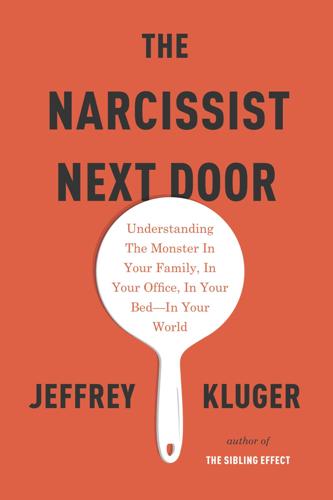
The Narcissist Next Door
by
Jeffrey Kluger
Published 25 Aug 2014
If the bulk of their social interactions [were] short-term, then self-enhancers could lead rewarding and productive lives.” Keith Campbell echoed this idea in a 2009 paper, paraphrasing the dictum of the play Glengarry Glen Ross, in which the salesmen in a fictional real estate office are taught “Always be closing”—in other words, approach every sale as if it’s a done deal and you’re just moving toward the inevitable signing. In the case of narcissists, Campbell believes, the rule should be: Always be emerging. That’s possible, of course, only with quick-hit relationships that can end before they turn toxic.
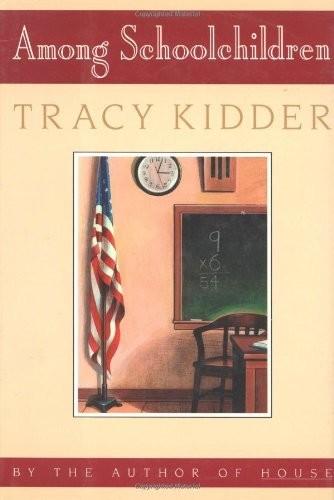
Among Schoolchildren
by
Tracy Kidder
Published 14 Jun 1989
The arrangement makes teachers conveniently interchangeable in the administrative sense, and also gives an institution a ready-made system of damage control—watertight bulkheads, as it were. When problems arise, they are isolated from the start in individual rooms. The doors to the rooms of incompetent and inadequately trained teachers can always be closed. Almost two and a half million people teach in public schools. Many of them work in curiously insular circumstances. Most teachers have little control over school policy or curriculum or choice of texts or special placement of students, but most have a great deal of autonomy inside their classrooms.
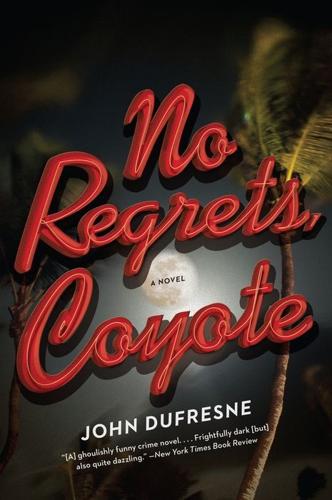
No Regrets, Coyote: A Novel
by
John Dufresne
Published 1 Jun 2014
I knew I’d regret this decision one day, but I put Django on the kitchen table where he could watch me surf the Web for all I could learn about Sedona, Arizona. He opened his mouth but no meow came out. That’s how grateful he was. He sat on the keyboard and then pressed command. I put his bowl on the table, and the food kept him busy while I worked. I don’t know why I thought I had any control over Phoebe’s life or why I thought she would always be close by. Sedona had once been called Red Rock. There are 11,220 residents, many metaphysical shops, and several spiritual vortices. I found an old linen postcard of the Alhambra on eBay. The hotel looked prim and respectable. The grass was trimmed and monochromatically green, the sky a powdery blue.
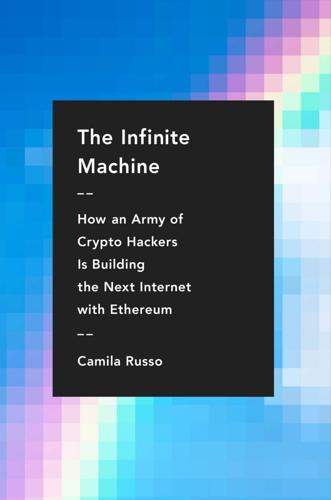
The Infinite Machine: How an Army of Crypto-Hackers Is Building the Next Internet With Ethereum
by
Camila Russo
Published 13 Jul 2020
They started thinking about moving to a place with less economic turmoil and where they could pursue new opportunities and experience new cultures. Even as their relationship faced its own strains, they agreed they’d move to the same location, even if they were separated as a couple. They wanted Vitalik to always be close to both of his parents. They researched countries to determine which would be the most hospitable in terms of work visas; their best options were Australia and Canada. They had never been to either but decided on Canada. It was closer, and the weather was a little bit more like Russia’s, so they figured it would be easier to adapt.
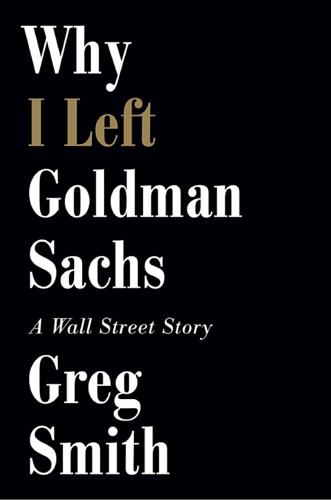
Why I Left Goldman Sachs: A Wall Street Story
by
Greg Smith
Published 21 Oct 2012
There was a microphone on the podium that broadcast into the Hoot, so if you were somewhere on the outskirts of the huge trading floor and couldn’t see Ricci, you still couldn’t escape his voice. And he was very fond of catchy abbreviations: a favorite of his was one he’d borrowed from David Mamet’s Glengarry Glen Ross—ABC, or “Always Be Closing.” (I don’t think he quite realized that Mamet’s play was a dark satire of unethical business practices.) He also relished GTB, or “Get the Business.” And then there were the sports analogies: “Let’s give it the full-court press.” “Let’s bring this one across the line.” “Let’s all raise our game into the end of the quarter.”

Priestdaddy: A Memoir
by
Patricia Lockwood
Published 1 May 2017
This park went by the sad name of The Beach, and the jingle was sung by a man pretending to be Jamaican. “Come to da beach! C-come to da beach!” the jingle coaxed, while the camera flashed on images of a surprised grandpa nearly being carried away by an artificial wave. It was the sort of place where a ride was always being closed down because someone had sustained a grievous injury on a flume. But no one can ever close down Nature, no matter how many patrons it kills. • • • BETWEEN THE MASSIVE BOULDERS, the water boils or is still. Missourians lie beached and belly-up everywhere, lounging in the pools with the physical frankness of people drinking beer in hot tubs, their elbows hoisted up on either side of them.
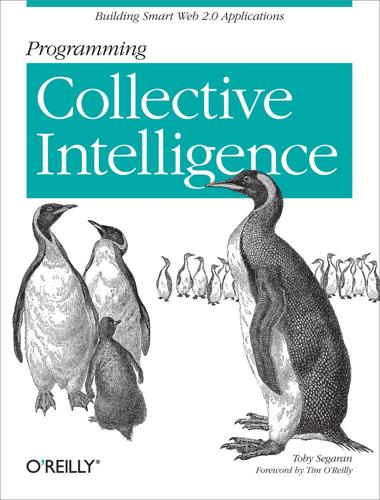
Programming Collective Intelligence
by
Toby Segaran
Published 17 Dec 2008
As the process goes on, the algorithm becomes less and less likely to accept a worse solution, until at the end it will only accept a better solution. The probability of a higher-cost solution being accepted is given by this formula: ((-highcost-lowcost)/temperature) Since the temperature (the willingness to accept a worse solution) starts very high, the exponent will always be close to 0, so the probability will almost be 1. As the temperature decreases, the difference between the high cost and the low cost becomes more important—a bigger difference leads to a lower probability, so the algorithm will favor only slightly worse solutions over much worse ones. Create a new function in optimization.py called annealingoptimize, which implements this algorithm: def annealingoptimize(domain,costf,T=10000.0,cool=0.95,step=1): # Initialize the values randomly vec=[float(random.randint(domain[i][0],domain[i][1])) for i in range(len(domain))] while T>0.1: # Choose one of the indices i=random.randint(0,len(domain)-1) # Choose a direction to change it dir=step*(-1)**int(round(random.random())) # Create a new list with one of the values changed vecb=vec[:] vecb[i]+=dir if vecb[i]<domain[i][0]: vecb[i]=domain[i][0] elif vecb[i]>domain[i][1]: vecb[i]=domain[i][1] # Calculate the current cost and the new cost ea=costf(vec) eb=costf(vecb) # Is it better, or does it make the probability # cutoff?
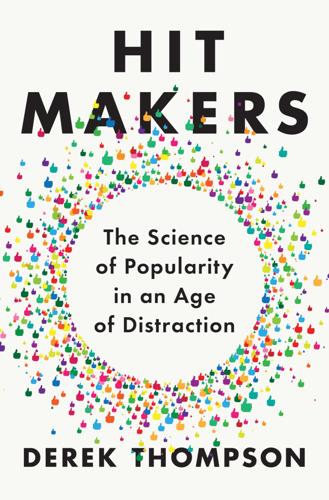
Hit Makers: The Science of Popularity in an Age of Distraction
by
Derek Thompson
Published 7 Feb 2017
Miranda Priestly, the Machiavellian editor in chief played by Meryl Streep in The Devil Wears Prada, has a visible breakdown over her marriage before ultimately triumphing in the film. Compare that with another ethically dubious boss, Gordon Gekko, the oily financier played by Michael Douglas in Wall Street, who enjoys cult worship despite being a relentless and unrepentant crook. Alec Baldwin’s “Always Be Closing” speech from Glengarry Glen Ross is one of the most glorious asshole moments in film history. But according to Bruzzese’s research, audiences would be less inclined to embrace a foulmouthed woman from downtown. If Bruzzese is right, Hollywood storytellers are caught in a trap of their own design.
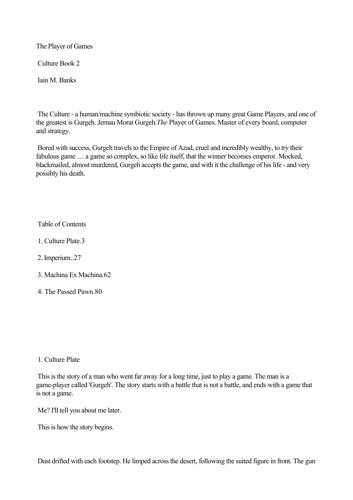
The Player of Games
by
Iain M. Banks
Published 14 Jan 2011
He still spent the majority of his time staring at the games shown on the screen. But the coded signals, and his own bad press, kept drawing him back, time and again, like a drug. 'But I don't like rings.' 'It isn't a question of what youlike , Jernau Gurgeh. When you go to Hamin's estate you'll be outside this module. I might not always be close by, and anyway I'm not a specialist in toxicology. You'll be eating their food and drinking their drink and they have some very clever chemists and exobiologists. But if you wear one of these on each hand - index finger preferably - you should be safe from poisoning; if you feel a single jab it means a non-lethal drug, such as a hallucinogen.

Battle: The Story of the Bulge
by
John Toland
Published 1 Jan 1959
The Ardennes was a vast charnel house for over 75,000 bodies. Troopers of the 17th Airborne Division were marching up to a Luxembourg church. "Sit down in place," ordered a company commander. The men, among them Pfc. Kurt Gabel, sat on the snow-covered cobblestones. The chaplain assured them their dead would always be close. The company commander cleared his throat. "Everyone on your feet." Then, "Bat-tal-ion, ten-hut! Present arms!" There was a mass noise of weapons. Taps were blown by a single bugler. Tears ran down Gabel's face as he thought of his dead friends at Flamierge. He looked around furtively. Everyone was crying.

When Nietzsche Wept: A Novel of Obsession
by
Irvin D. Yalom
Published 21 Mar 2011
“Everything has deteriorated. Paul and Nietzsche have become enemies. Paul grows angry every time he reads Nietzsche’s letters to me, every time he hears of any tender feelings I have for Nietzsche.” “Paul reads your letters?” “Yes, why not? Our friendship has grown deeper. I suspect I will always be close to him. We have no secrets from one another: we even read one another’s diaries. Paul has been entreating me to break off with Nietzsche. Finally I acquiesced and wrote Nietzsche that though I shall always treasure our friendship, our ménage à trois was no longer possible. I told him that there was too much pain, too much destructive influence—from his sister, from his mother, from the quarrels between him and Paul.”
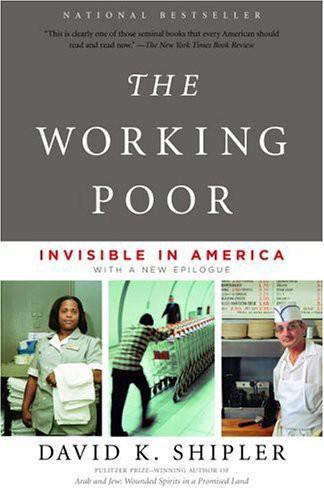
The Working Poor: Invisible in America
by
David K. Shipler
Published 12 Nov 2008
It was dated February 8,1998, the first entry in a spiral notebook filled with badly spelled musings written almost entirely in pencil. Many were done as letters to God—in gratitude, in appeal, in desperate pleading for survival. “So, God,” she concluded that first evening, “please bless Tom, Zach, Matt, Katie & myself—long life, Love, Happiness, laughter, and to always be close to each other and thank you for Today. Amen. Kara.” Her delights were simple. It was “a wonderful day” when “Tom Bill & virginia went and picked me up a dual range stove, good deal $50.00 bucks—the left front burner don’t work but it’s better than only two burners and one oven,” or when “Tom made Brownies and apple cinnimon muffins for Head Start, & Zach made a date cake—it all sold.

Higher-Order Perl: A Guide to Program Transformation
by
Mark Jason Dominus
Published 14 Mar 2005
We’ll pick two points close to that and find the slope of the line that passes through them. Say we choose (2.001, 2.004001) and (1.999, 1.996001). The slope of the line through two points is the y difference divided by the x difference; in this case, 0.008/0.002 = 4. And this does match the answer from calculus exactly. It won’t always be an exact match, but it will always be close, because differential calculus uses exactly the same strategy, augmented with algebraic techniques to analyze what happens to the slope as the two points get closer and closer together. It’s not hard to write code that, given a function, calculates the slope at any point: sub slope { my ($f, $x) = @_; my $e = 0.00000095367431640625; ($f->($x+$e) - $f->($x-$e)) / (2*$e); } The value of $e that I chose is exactly 2−20; I picked it because it was the power of 2 closest to one one-millionth.
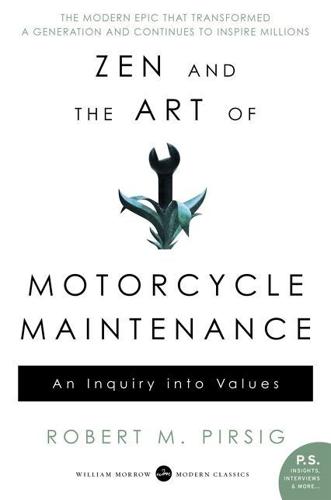
Zen and the Art of Motorcycle Maintenance: An Inquiry Into Values
by
Robert M. Pirsig
Published 1 Jan 1974
To reinforce the idea that they already knew what Quality was he developed a routine in which he read four student papers in class and had everyone rank them in estimated order of Quality on a slip of paper. He did the same himself. He collected the slips, tallied them on the blackboard and averaged the rankings for an overall class opinion. Then he would reveal his own rankings, and this would almost always be close to, if not identical with the class average. Where there were differences it was usually because two papers were close in quality. At first the classes were excited by this exercise, but as time went on they became bored. What he meant by Quality was obvious. They obviously knew what it was too, and so they lost interest in listening.
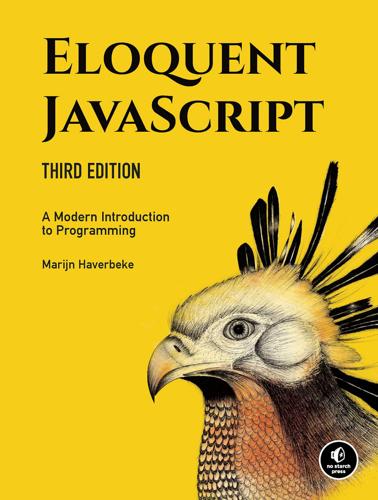
Eloquent JavaScript: A Modern Introduction to Programming
by
Marijn Haverbeke
Published 15 Nov 2018
<h1>Testing alert</h1> <script src="code/hello.js"></script> The code/hello.js file included here contains the same program— alert("hello!"). When an HTML page references other URLs as part of itself—for example, an image file or a script—web browsers will retrieve them immediately and include them in the page. A script tag must always be closed with </script>, even if it refers to a script file and doesn’t contain any code. If you forget this, the rest of the page will be interpreted as part of the script. You can load ES modules (see “ECMAScript Modules” on page 173) in the browser by giving your script tag a type="module" attribute.

Living Well on the Spectrum
by
Valerie L. Gaus
Published 4 Feb 2011
Every group has its own subculture with rules of its own, which can be very difficult for even the most intelligent person on the spectrum. For example, if the manager of an office has her door closed, it may be known in the office “culture” that this means she does not want to be disturbed. In another office with a different “culture” the door may always be closed but the manager expects people to come and knock when they need to talk to her. A neurotypical person may be quick to figure out a rule like that when changing jobs, but a person on the spectrum may have great difficulty with this. Unique Styles of Speech and Expression People on the spectrum also have some unique ways of expressing themselves.
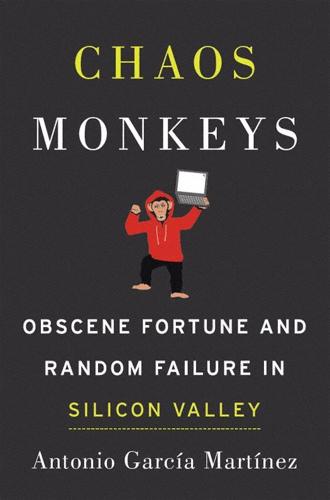
Chaos Monkeys: Obscene Fortune and Random Failure in Silicon Valley
by
Antonio Garcia Martinez
Published 27 Jun 2016
In a hipster world of fixies and intentionally distressed wood (and people), he was the adult in the room keeping an eye on the register. Jessica introduced us. “So what are you working on?” he asked, taking a valuable minute out of his day. In a panic, I realized I hadn’t brought my AdGrok laptop to lunch, and was therefore not ready for an impromptu demo. FAIL! Always be closing, motherfucker. But we had an out. MRM, ever the inventive engineer who knew how to extract value six different ways from the same piece of code, had coded up an AdGrok-hosted demo site for the GrokBar that allowed for a demo off any machine, including tablets or phones. “Can I show you on your laptop?”

Evil Geniuses: The Unmaking of America: A Recent History
by
Kurt Andersen
Published 14 Sep 2020
Lots of Wall Street fans also got their ferocious animal spirits ignited by watching and memorizing the most memorable scene from a contemporaneous companion piece, David Mamet’s Glengarry Glen Ross, where Alec Baldwin’s character Blake mysteriously arrives to terrify an office of real estate salesmen. “A-B-C—A, always, B, be, C, closing. Always be closing,” “Coffee’s for closers only,” “Do you think I’m fucking with you? I am not fucking with you,” “Nice guy? I don’t give a shit. Good father? Fuck you, go home and play with your kids,” and “What’s my name? Fuck You, that’s my name.”*1 He’s like a hellish noncommissioned officer to Gekko’s gleefully demonic general in the U.S. capitalist legion as it was then being reconstituted.
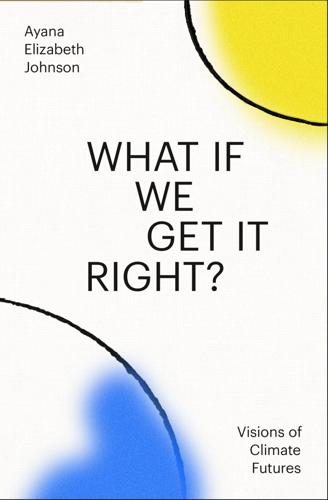
What If We Get It Right?: Visions of Climate Futures
by
Ayana Elizabeth Johnson
Published 17 Sep 2024
Out that way there are people who will be able to help me out if my solar panels aren’t working, who might be knowledgeable about the aquifer, the land itself, navigating where to harvest what in the summertime or in the fall time. Not to mention it’s surrounded by Indigenous communities. So I’ll always be close to my community, my pueblo, my Tribe. Having that nearby is one-hundred-percent a priority. Any community in the near or far future is going to have to localize. People who know that this transition, these adaptations are coming, and who are entering those calculations into their life plans, those are the people that I want to be around, that I’m attracted to.
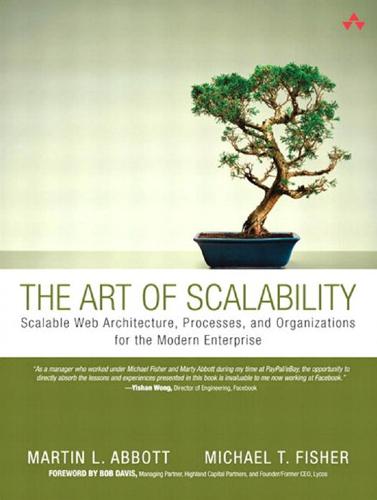
The Art of Scalability: Scalable Web Architecture, Processes, and Organizations for the Modern Enterprise
by
Martin L. Abbott
and
Michael T. Fisher
Published 1 Dec 2009
As such, information on the past operations of any given thread of execution or series of requests must be maintained somewhere. In maintaining state for a series of transactions, engineering teams typically start to gather and keep a great deal of information about the requests. State costs money, processing power, availability, and scalability. Although there are many cases where state is valuable, it should always be closely evaluated for return on investment. State often implies the need for additional systems and sometimes synchronous calls that would not exist in a stateless system. It also makes designing for multiple live data centers more difficult—how can you possibly handle a transaction with state stored in data center X in data center Y without replicating that state between data centers?
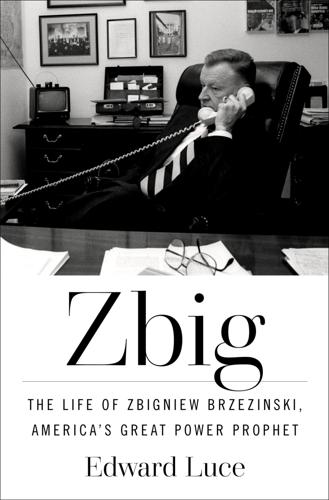
Zbig: The Life of Zbigniew Brzezinski, America's Great Power Prophet
by
Edward Luce
Published 13 May 2025
“It is one thing to long and wait and believe that things are better over there [in Heaven], and quite another to give up completely and capitulate and drown in it.”82 Tadeusz’s financial woes further exacerbated Leonia’s inertia. His efforts at selling insurance over the phone were destined to fail; the gentle ex-diplomat was a world apart from the always-be-closing salesman he needed to be. He tried his hand at various ventures, including setting up a travel agency, Terra Company, which arranged group tours to Poland. But his new business was vulnerable to changing political winds. His pro bono attempts to unite Poland’s highly fractious diaspora in Canada and beyond often fell under the jaundiced gaze of Poland’s secret police.

Lonely Planet Scotland
by
Lonely Planet
No restaurant will insist on jackets or ties, nor will any theatre or concert hall. Summer days can be warm but rarely hot, so you’ll always want something around your legs and shoulders when the inevitable cool sets in. In the end, the factor that will determine your outfits the most is the weather, which also means that a light, waterproof jacket should always be close at hand, preferably one that you can fold away and keep in a shoulder bag. Sleeping Booking accommodation in advance is recommended, especially in summer, at weekends, and on islands (where options are often limited). Book at least two months ahead for July and August. If you're going to be in Edinburgh in August (festival month) or at Hogmanay (New Year), book as far in advance as you can – a year if possible.

Lonely Planet Scotland
by
Lonely Planet
No restaurant will insist on jackets or ties, nor will any theatre or concert hall. Summer days can be warm but rarely hot, so you’ll always want something around your legs and shoulders when the inevitable cool sets in. In the end, the factor that will determine your outfits the most is the weather, which also means that a light, waterproof jacket should always be close at hand. Sleeping Book in advance, especially in summer, at weekends, and on islands (where options are often limited). Book at least two months ahead for July and August. B&Bs Small, family-run houses that are generally good value. More luxurious versions resemble boutique hotels. Hotels Range from half-a-dozen rooms above a pub to restored country houses and castles, with a commensurate variety of rates.
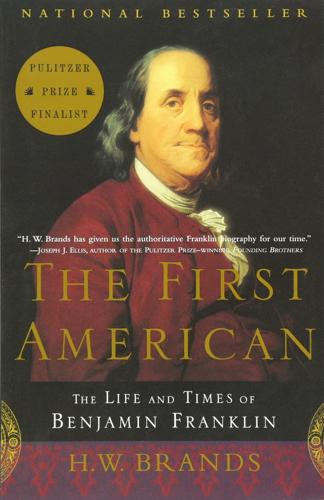
The First American: The Life and Times of Benjamin Franklin
by
H. W. Brands
Published 1 Jan 2000
The younger man accompanied the elder on the return to London. During the journey Franklin grew to like Bache. “His behaviour here has been very agreeable to me,” Franklin told Debbie. He also gave Bache some advice, which he—Franklin—shared with Sally in a letter. “I advised him to settle down to business in Philadelphia where he will always be close to you.” This might have seemed odd coming from a husband who had spent less than two years of the last fifteen on the same continent with his own wife, but perhaps no odder than an additional pearl—from the king’s postmaster of thirty-five years—about eschewing public office. “I am of opinion that almost any profession a man has been educated in is preferable to an office held at pleasure, as rendering him more independent, more a freeman less subject to the caprices of superiors.”
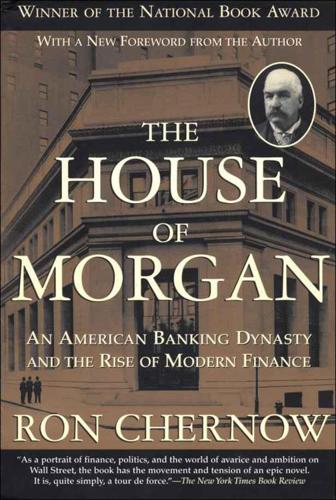
The House of Morgan: An American Banking Dynasty and the Rise of Modern Finance
by
Ron Chernow
Published 1 Jan 1990
They welcomed having an Anglo-American listening post on Wall Street, especially as financial power shifted across the Atlantic. But the government’s deliberations during the war were veined by a certain cynicism, a belief that Morgan partners drove a hard bargain and needlessly offended people with their arrogance. Relations between the Morgans and the British would always be close but seldom harmonious, a fraternal tension lurking beneath protestations of mutual devotion. WHERE other partners at 23 Wall Street harbored some secret envy or suspicion of their British brethren, Jack Morgan had no such reservations. He regularly spent up to six months a year in England and was fully bicultural.